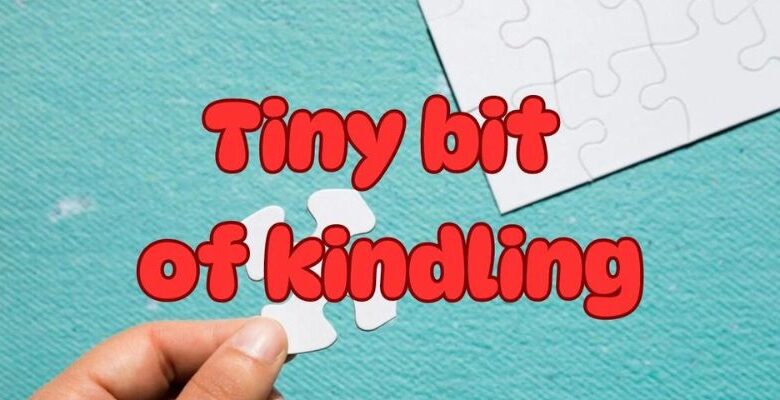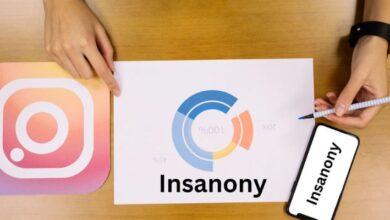Tiny Bit of Kindling: Add Creativity and Originality

Even the slightest spark may cause a significant impact in a society where innovation and originality are valued more and more. The expression “tiny bit of kindling” refers to those small things that have the power to cause big things to happen. This topic, which has been studied in many academic contexts, emphasizes how seemingly little concepts or acts can result in important discoveries.
Whether it’s in writing, business, or personal development, realizing the significance of this metaphor may provide insightful knowledge about encouraging innovation and advancing advancement.
The Influence of Little Starts
“A tiny bit of kindling” is a metaphor for the idea that seemingly insignificant acts or ideas may have a disproportionately big effect. Groundbreaking inventions frequently began as small-scale projects. For example, the internet was first developed as a side project to facilitate researcher-to-researcher communication. It has changed every facet of modern life as it exists now.
This is not only a technological principle. The expression has a literary connection to the development of simple concepts into intricate stories. Classic novels sometimes started with a straightforward idea or observation that the writer subsequently developed into a noteworthy piece of literature.
In Literary Arts: The Origins of Outstanding Pieces
Writing projects frequently begin with a “tiny bit of kindling.” Think about the first drafts of well-known books. For example, the basic premise of J.K. Rowling’s “Harry Potter” series was a young child finding he is a wizard. This simple idea became a worldwide sensation, enthralling millions of readers and impacting modern writing.
In a similar vein, George Orwell’s “1984” opened with his thoughts on the perils of monitoring and totalitarian governments. His basic ideas evolved into a dystopian story that has stayed relevant and influenced political conversation to this day. These instances show how a tiny concept may become something revolutionary and powerful if it is cultivated and developed.
In Business: From Minor Breakthroughs to Sector Transitions
A small piece of kindling may also make a big difference in the economic world. Numerous prosperous businesses started off with modest yet creative concepts. For instance, Amazon was first an internet book seller. Although Jeff Bezos’s original idea was rather straightforward, it eventually grew to become one of the biggest online retailers in the world.
Similar to this, Apple Inc. started out as a small group of hobbyists in a garage tinkering with personal computers. Early efforts by Steve Jobs and Steve Wozniak established the groundwork for a business that transformed design and technology, influencing everything from cellphones to personal computers.
These illustrations stress the value of fostering little concepts and keeping an open mind about their potential to develop. Identifying and funding these “tiny bit of kindling” in business can result in significant breakthroughs and revolutions in the sector.
The Significance of Inquisitiveness and Flexibility
To find and nurture these small bits of kindling, curiosity and an open mind are essential. Being receptive to fresh viewpoints and ideas enables people and organizations to perceive potential in apparently unimportant details. Curiosity propels the investigation of novel ideas and fosters the growth of modest thoughts into larger, more meaningful ones.
For example, first observations or ideas in scientific study may not appear important at first, yet they frequently result in important findings. For example, the accidental finding of mold growth led to Alexander Fleming’s discovery of penicillin. He was willing to investigate this discovery out of curiosity, and it led to a medical breakthrough.
Developing Original Thoughts Through Tiny Concepts
Innovation requires creating an atmosphere that values creativity and little ideas. Both people and organizations may gain from establishing environments that value innovation and exploration. This might entail scheduling brainstorming sessions, encouraging teamwork, and remaining open to novel concepts.
Encouraging students to undertake little projects and explore their interests can result in substantial learning and innovation in the classroom. Schools that encourage student creativity and encourage curiosity frequently witness notable increases in student engagement and academic success.
Difficulties and Points to Remember
The idea of a small amount of kindling is potent, but it is not without difficulties. Patience and persistence are needed to recognize and grow minor ideas. Not every little thought will grow into a big discovery, and some can take a long time to come to fruition.
Furthermore, striking a balance between inventiveness and pragmatism is crucial. Small ideas should be nurtured, but it’s also critical to make sure they’re realistic and fit within larger objectives and available resources. This equilibrium guarantees that efforts are focused on significant and attainable results and helps avoid wasting resources.
conclusion
A small bit of kindling may go a long way toward sparking invention and creativity in many different industries. The importance of modest beginnings in writing, business, or personal development cannot be overstated. People and organizations may effect major change and accomplish amazing things by identifying and fostering these little sparks.
Embracing creativity, open-mindedness, and curiosity may transform small ideas into potent catalysts for change, which will ultimately result in a society that is more dynamic and rich.
FAQ’s
What is meant by “a tiny bit of kindling”?
It describes a tiny thought or deed that has the capacity to lead to a big invention or change.
How might minor concepts result in significant breakthroughs?
With careful development, nurturing, and research, little ideas may grow into significant inventions that frequently provide transformational results.
Can you give instances of little concepts that grew into important ones?
Sure, the internet, which began as a little endeavor, and Apple’s early personal computers, which developed into a significant technological firm, are two instances.
How can people use this idea to further their own personal development?
People may make tremendous progress in their personal growth over time by committing to little, regular behaviors, like reading or exercising every day.
What obstacles exist for developing little ideas?
Difficulties include the requirement for patience, the possibility that ideas won’t grow as intended, and making sure that modest ideas are workable and consistent with larger objectives.
Read also: www.aeonscope.net: All You Need to Know



